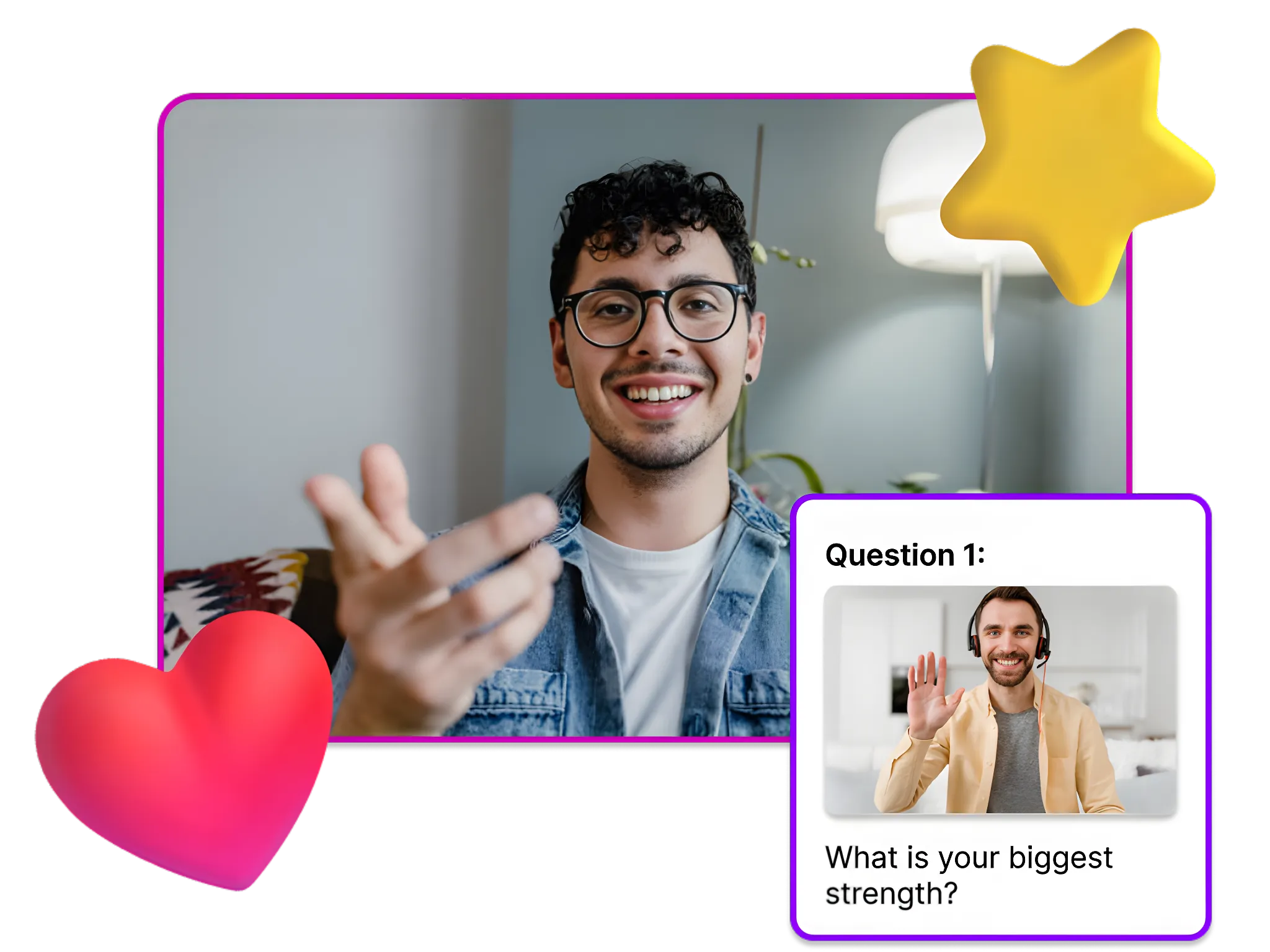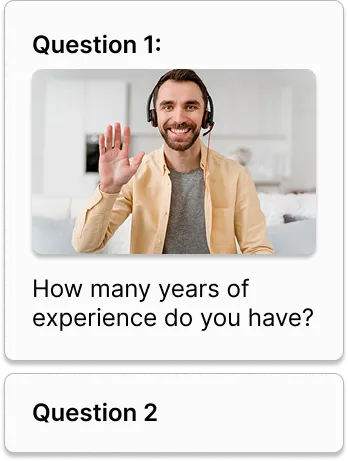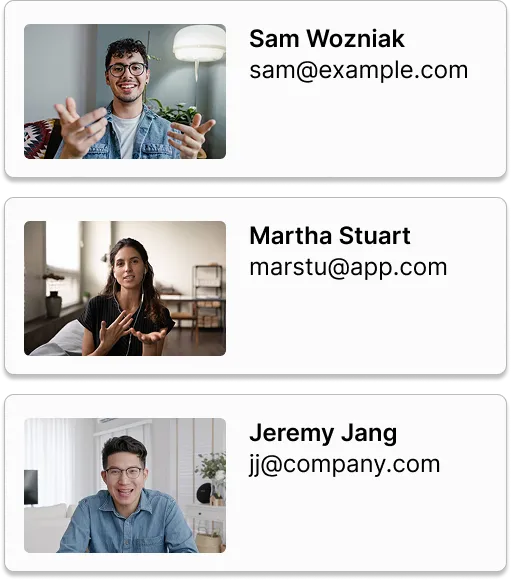
Join 2000+ professionals and get actionable feedback from every interview.

Bid farewell to the endless back-and-forth emails trying to find a suitable time for interviews.
Pre-recorded interviews remove the pressure of live interviews, letting candidates shine in a relaxed setting. 4o
Standardize interviews with the same questions for all candidates to reduce bias and ensure fairness.

Our intuitive platform allows you to customize the interview process and craft a set of thoughtful questions to meet your specific needs.

Send invitations to participants, allowing them to complete the interview on their own time. No need to coordinate schedules.

Access and review responses at your convenience. Our user-friendly interface makes it easy to evaluate and compare responses on your own terms.
Get answers to your burning questions here
2000+ Happy Users
"This tool made it ridiculously easy to collect interview clips for my podcast. I just sent a link, and guests recorded their answers whenever it worked for them. No awkward scheduling, no tech headaches."
Jenny Wilson
Content creator
"This tool helped us scale our candidate screening process. Pre-recorded interviews mean our team reviews responses on their own time, and candidates love the flexibility. It’s efficient and feels modern."
Devon Lane
Hiring executive
Join over 200+ companies already using VidConvo